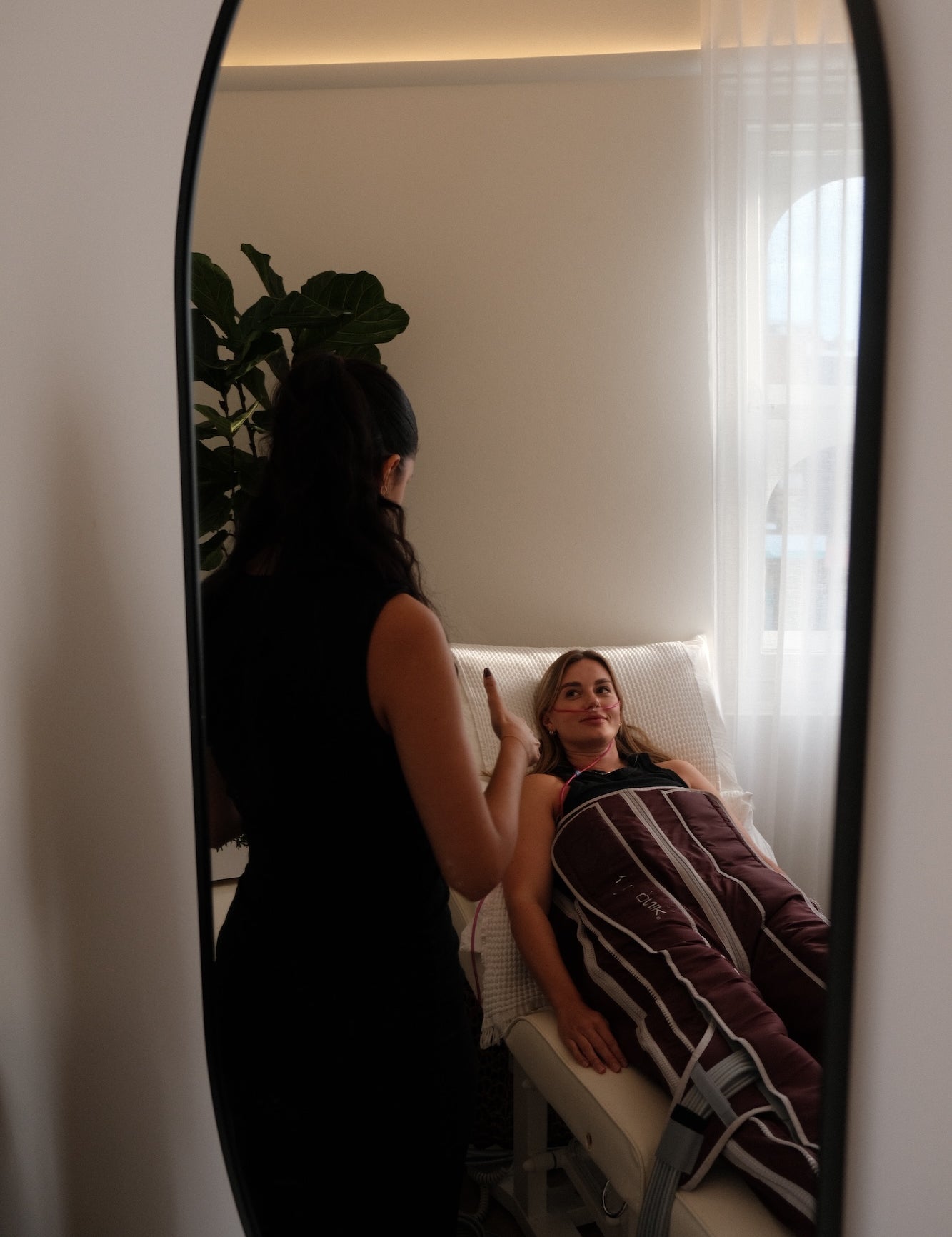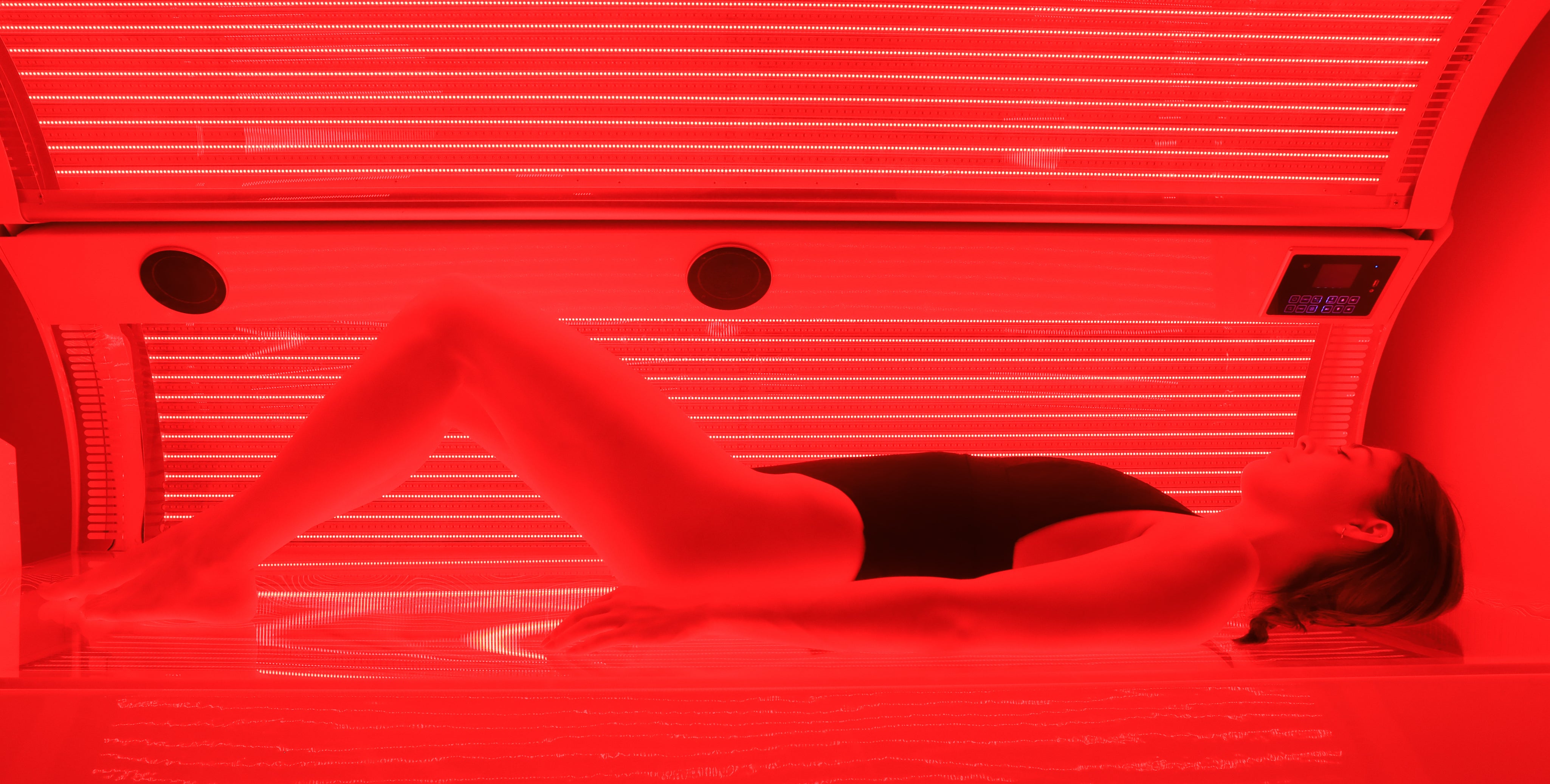Do Infrared Saunas Have Any Health Benefits?

Naturopath review by
Bachelor Health Science
There is a lot to love about saunas. For starters, they’re relaxing – but they also come with a lot of heat therapy benefits.
Compared to traditional saunas, one benefit of infrared saunas is that their light may penetrate deeper into the skin. "Infrared light is believed to penetrate the skin more deeply than the heat generated by traditional saunas," explains Cassandra Hilton, Clinical Naturoapth at Tsavo Wellness Mosman.
Cassandra shares that this deeper penetration of infrared may promote improved circulation, relaxation, and cellular healing. "Proponents of far-infrared saunas claim that the deep penetration of infrared light can aid in detoxification by promoting the release of toxins stored in fat cells," she explains.
Another benefit of infrared saunas is that they often run at lower temperatures than traditional saunas. "This can make them more comfortable for individuals who find the high temperatures of traditional saunas difficult to tolerate," Cassandra says.
Infrared sauna health benefits
Research has linked infrared saunas with the following health benefits:
- Faster muscle recovery after exercise
- Improved cardiovascular health
- Could help ease chronic pain
- Improved mood
- Better sleep quality
- Improved skin health
Cassandra explains that most research on saunas comes from Finland, where sauna usage is a part of their culture. "Benefits are mostly through the mode of improvement in cardiovascular health through reduction in blood pressure, improvement in endothelial function, reduction in inflammation, and improved arterial compliance," Cassandra says.
These benefits are linked to better sleep, enhanced cardiorespiratory function, improved immune system health, lower risk of neurocognitive disease, and even improved pain and muscle recovery after injury.
When it comes to biohacking your way to health, one of the most impressive results of tested sauna usages include improvement in all-cause mortality, which Cassandra explains as "your overall chance of living longer."
"The absolute risk reduction in this study is 18% and relative risk reduction 40% for those who sauna versus those who do not—that is impressive," she emphasizes.
When to use an infrared sauna
Infrared saunas should be safe to use as long as you are not pregnant or under the influence of alcohol or drugs, have a fever, or have any other existing health conditions that could be negatively affected by sauna usage. If you're not sure, it's always best to check with your medical provider.
Infrared saunas can be especially beneficial for those looking to ease sore muscles after workouts, people with chronic pain, or individuals just interested in relaxing. Those who prefer the comforts of a sauna with lower temperatures may also want to go with an infrared sauna over a traditional sauna.
How long to stay in a sauna
Beginners should start with 20-minute sessions or lower if they are very sensitive to heat, twice per week. "Once your body adjusts, you can increase the time and frequency and length of sessions," she says. Remember, if the heat ever feels too hot to you, you can always step out.
"So, the overall message is to do what you can, but if you can get up to four [sessions per week], that is where you will see even more benefit," Cassandra says.
Sauna safety cautions
Hydration is one of the most important things to consider when using saunas. You will be sweating a lot, so prepare your body by drinking a glass of water or two before use and take short breaks in your session to step out and hydrate.
You may want to remove any jewellery as metal may heat up quickly in the sauna. "Also, avoid wearing anything tight fitting," she adds, "Choose something loose and comfortable or no clothes at all!"
It is important to listen to your body and not push yourself too hard. If you start feeling nauseous, lightheaded, or dizzy, it is time to get out of the sauna.
Who should avoid saunas?
Pregnant women may want to avoid both infrared and traditional saunas. You should also not use any form of sauna if you're under the influence of drugs and alcohol or have a high fever or are feeling unwell.
Those with heat intolerance or orthostatic blood pressure conditions, autoimmune conditions affecting the sweat glands, must exercise extreme caution in saunas and check in with their doctor before using one.
"Certain medications can also affect your response [to saunas]," Cassandra mentions. "So again, please talk to your doctor prior to use."
Additionally, men who are having issues with conception may not want to partake in sauna sessions. Cassandra shares that “sperm count may drop if testicles are exposed to high temperatures for a prolonged period of time.” "However, sperm count numbers tend to recover after a period of time," she assures.
References
- Health Benefits of Sauna Bathing: A Review
- Sauna Bathing & Cardiovascular Mortality Risk
- Infrared Sauna & Post-Training Recovery in Men
- Infrared Sauna in Arthritis & Spondylitis Patients
- Sauna Bathing Linked to Lower Dementia Risk in Men
- Sauna's Effect on Skin Barrier & Stratum Corneum
- Heavy Metals in Sweat: Nickel, Copper, Zinc, Lead
- Sauna's Impact on WBC & Cortisol in Athletes


